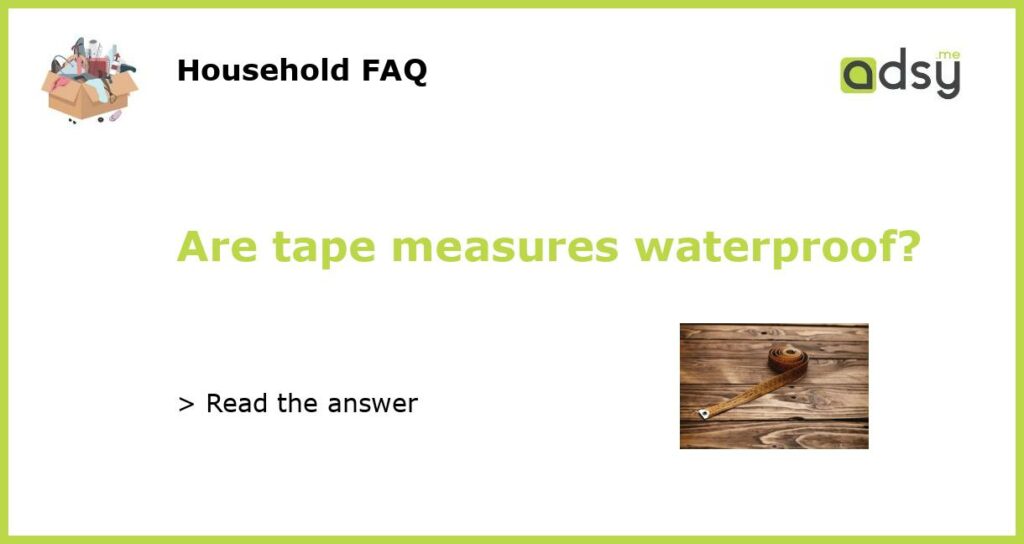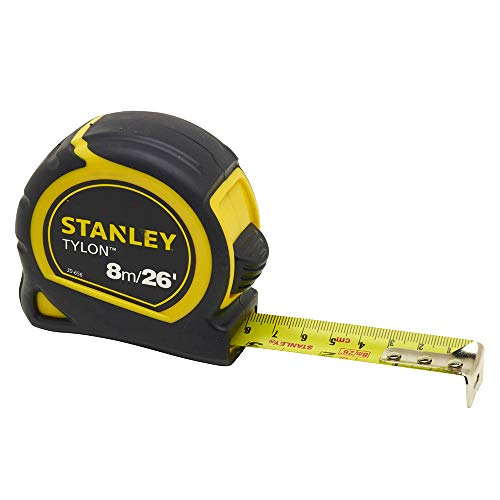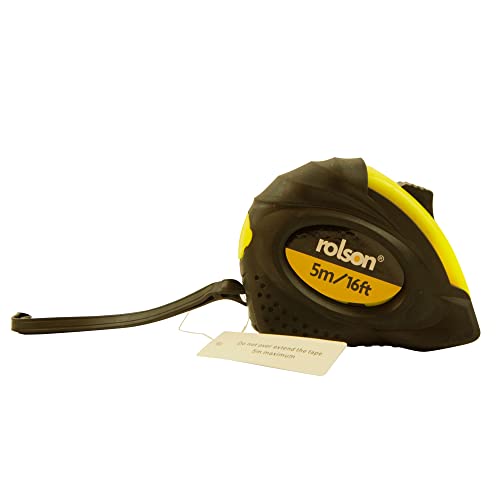Yes, tape measures can be waterproof
Tape measures are one of the most commonly used tools in various industries, including construction, woodworking, and sewing. They are designed to provide accurate measurements for a wide range of applications. While most tape measures are not inherently waterproof, there are models available that offer water-resistance or even complete waterproofing.
Types of tape measures
Before discussing the waterproof capabilities of tape measures, it is important to understand the different types available in the market. The two main types of tape measures are standard tape measures and digital tape measures.
Standard tape measures, also known as retractable tape measures, consist of a long tape made of metal or a flexible material such as fabric or plastic. These tapes are marked with measurements in either metric or imperial units. Standard tape measures are convenient to use and come in various lengths, ranging from a few feet to several meters.
Digital tape measures, on the other hand, use electronic technology to provide measurements. These tape measures often have a digital display that shows the measurements in different units. Digital tape measures are typically more accurate than standard tape measures and can offer various additional features such as memory storage, calculation capabilities, and even Bluetooth connectivity to transfer data to a smartphone or computer.
Waterproof tape measures
While most standard tape measures are not specifically designed to be waterproof, some models do offer water-resistance to a certain extent. These tape measures usually have a protective coating or casing that helps prevent water from damaging the tape and internal components. They are often labeled as “water-resistant” or “splash-proof.”
Water-resistant tape measures are particularly useful in construction and woodworking projects where they may be exposed to rain or other forms of moisture. They can withstand occasional splashes or brief exposure to water without being permanently damaged. However, it is important to note that water-resistant tape measures are not fully waterproof and should not be submerged in water or exposed to prolonged wet conditions.
For applications that require complete water-resistance or waterproof capabilities, specialized tape measures are available. These tape measures are specifically designed for marine or underwater use. They are often made of durable materials such as stainless steel or plastic and are constructed to withstand immersion in water for extended periods without any damage or loss of accuracy.
Considerations for waterproof tape measures
When choosing a waterproof tape measure, there are several factors to consider:
Waterproof rating: Look for tape measures that have a high waterproof rating, preferably IP67 or higher. This rating indicates the level of protection against dust and water ingress. An IP67 rating means the device is “dust-tight” and can be submerged in up to 1 meter of water for 30 minutes without any damage.
Construction materials: Consider the materials used in the construction of the tape measure. Stainless steel or plastic cases are commonly used for waterproof tape measures, as they provide excellent resistance to corrosion and moisture.
Accuracy and functionality: Ensure that the waterproof tape measure offers the required level of accuracy for your specific application. Additionally, consider any additional functionality that may be useful, such as memory storage, Bluetooth connectivity, or measurement conversion capabilities.
Care and maintenance
Even with a waterproof tape measure, it is important to properly care for and maintain the tool to ensure its longevity and accuracy. Here are some tips:
Keep it clean and dry: After each use, wipe down the tape measure with a dry cloth to remove any moisture or debris. Store it in a dry location to prevent the buildup of rust or mold.
Avoid excessive moisture: While waterproof tape measures can handle some moisture, avoid exposing them to excessive water or prolonged wet conditions whenever possible. This will help prolong their lifespan and accuracy.
Regularly check for damage: Inspect the tape measure for any signs of damage, such as cracks, dents, or worn markings. Replace any damaged tape measures to ensure accurate measurements.
Follow manufacturer guidelines: Always follow the manufacturer’s guidelines for proper use and maintenance of the tape measure. This will help ensure its longevity and accuracy.






